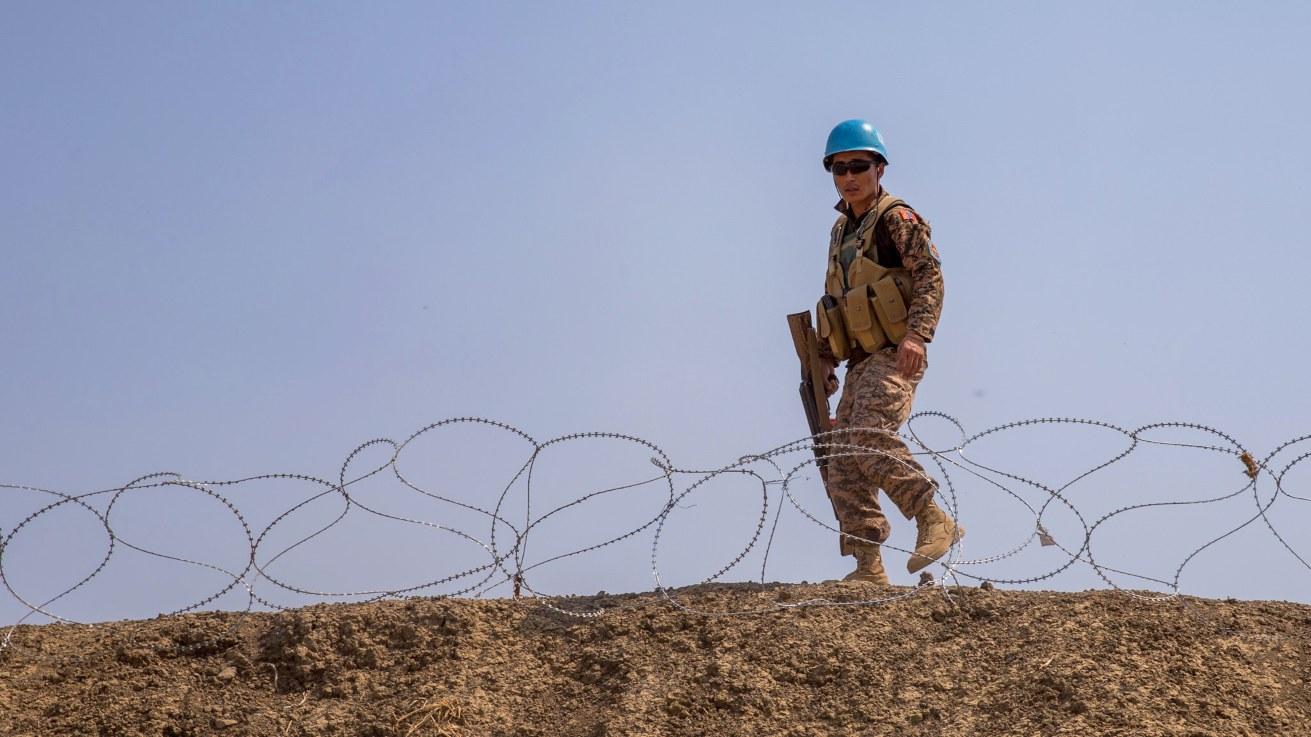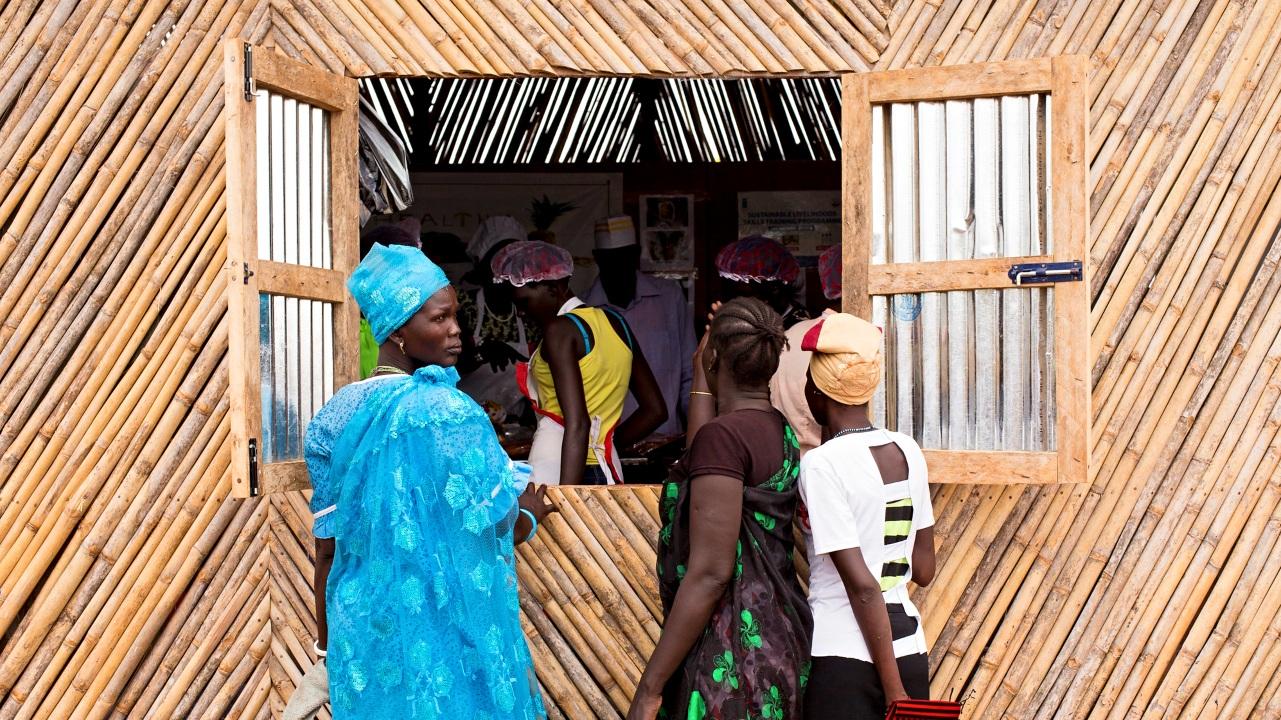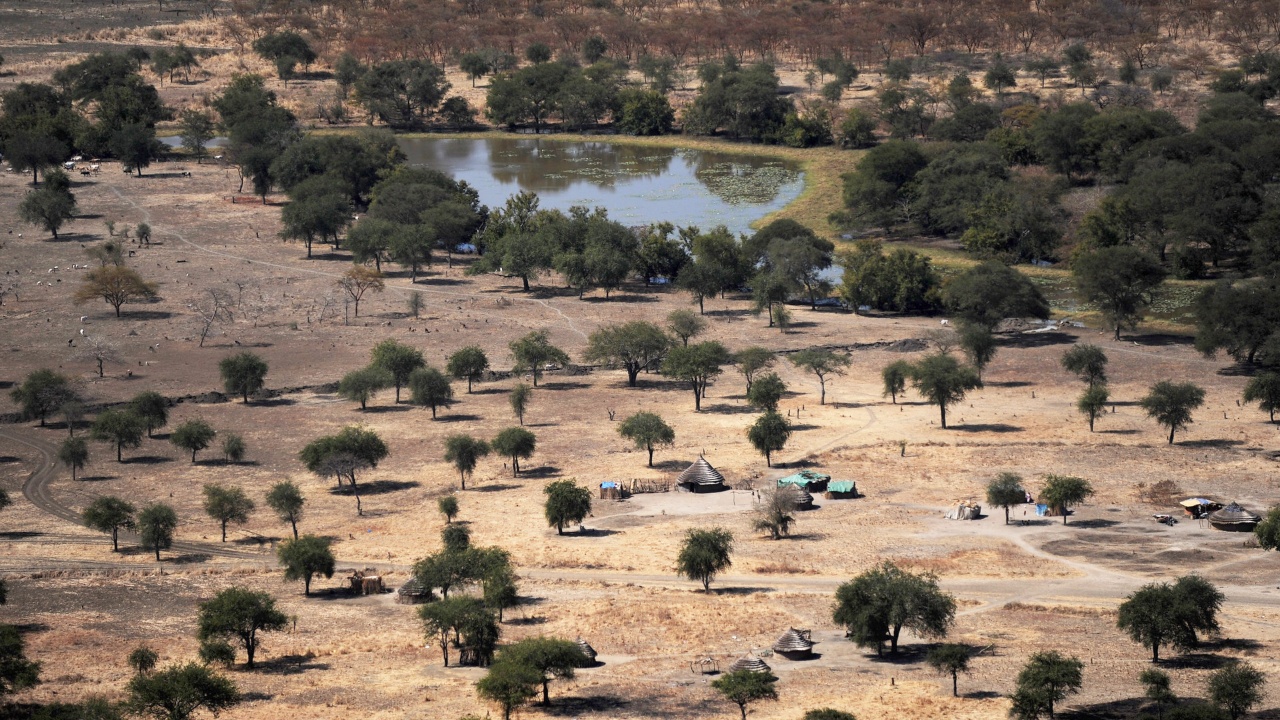Enduring violence in South Sudan since independence has made seeking safety and protection a priority for local communities, as the government and humanitarians often fail to provide for more than basic needs. New ethnographic research examines how safety is understood from the community perspective, and why a community arms race and ethnicised forms of protection mark a shift away from reliance on external actors.
This article is based on research conducted at the LSE Firoz Lalji Institute for Africa project Safety of Strangers.
From 2013-18, the deadly war fought between the South Sudan government and the Sudan People’s Liberation Army-In Opposition (SPLA-IO) resulted in the excess mortality of over 400,000 people. In 2018, the two sides finally signed a peace deal to end open hostilities. However, armed conflict in South Sudan continued. International aid workers and diplomats became increasingly frustrated by ongoing fighting in what was meant to be a time of ‘peace’.
I have recently conducted research in Bor, South Sudan on community perspectives of protection, safety and security. The research has involved talking to chiefs, community elders, NGO workers and armed youth to understand how these concepts are understood on the frontline of the war’s effects. Indeed, armed youth have often been blamed for the ongoing violence (‘What would it take for the youth to give up their guns?’, one foreign UN worker asked in a meeting I attended). Our comparative findings will be published in Global Policy next year.
Understanding safety and protection from community perspectives
Communities in South Sudan often understand safety and protection in terms of the availability of food and cattle, a lack of shocks such as flooding and being free from violent attacks. For the community to shield themselves in the past was to farm, buy cattle, have many children (which for men can mean marrying many wives), buy guns and ensure dykes are built to prevent flooding. Young people’s access to food and arms, in particular, can make a community feel safe and secure.
Today, however, safety and protection have become increasingly complex. The proliferation of arms in the hands of the civil population over decades has created many unpredicted insecurities. As one man from Bor described:
‘In 1985, I went to Zaire (Democratic Republic of Congo) to buy a gun and when I brought the gun, my community was safer, I would go [and] out hide in the bushes while other people are looking after the cattle in the grassing fields, we feel safer and protected’.
Over the last four decades, the volume and type of guns available has also changed. Other men in Bor said:
‘Today, you can imagine, every community has guns. Some have machine guns such as RBG rocket grenade propeller or PKM machine guns. It is no longer an ordinary conflict.’
‘Today, the availability of guns makes it easy for any community or individuals to attack people, encourage the presence of many militias, bandits and ethnics militias [whose] intentions are looting, raiding and killing without remorse.’
Government and humanitarians as safety and protection
This context discussed above has been described as militarised insecurity, in which the government and humanitarians are often untrusted by many South Sudanese communities to intervene and provide them safety, either due to an inability or unwillingness. As one respondent described:
‘I was in Bor when conflict erupted in 2013 and the way things unfolded, government or UNMISS [United Nations Mission in South Sudan] will not protect you, only your people and yourself.’
Additionally, the government itself can be feared and mistrusted, as exemplified during the COVID-19 outbreak, with many people rejecting government messages around the virus, unless they came from their local chiefs.
Yet there is a consensus among humanitarians that a humanitarian presence is important. Some humanitarian staff suggested that South Sudan can collapse without their aid. One humanitarian worker concluded:
‘This country is being run by the UN and humanitarian and, without them, the country will collapse in a week.’
Community groups we spoke to differed in opinion on whether humanitarian work had short-term benefits when the work generated long-term dependency. These groups both point to the humanitarians’ ability to protect people from hunger and deliver medicines to the hospital, but some argued they have failed to address the population’s real needs. One chief noted:
‘To me, there is a problem here, solving short term needs and destroying the society in the long term’.
The UN and humanitarians have also been shown, on occasions, to fail to keep people safe beyond providing basic needs. Various attacks on UNMISS bases such as Akobo, Bor and Malakal, in which people were killed in the presence of peacekeepers, has reduced community trust in UNMISS’ abilities. To local communities, in some cases UNMISS is responsible for the physical abuse of people under their protection, as seen in Wau. Many I spoke to registered disappointment, with one chief reckoning on a humanitarian:
‘He does not understand the role of UNMISS in Bor. Maybe it is working for the government, collect information from the community and pass it to the government because we know people were killed by the SPLA-IO and government forces on their watch in their bases or near their bases and … in the compounds.’
A community elder explained:
‘The complexity of the situation in South Sudan makes it difficult to put your safety and protection in the hands of one entity, government or UN. For example, you might have heard of people being removed and killed under the watch of UNMISS when people sought safety and protection in their compound in Akobo.’
An arms race in the community
A lack of trust in government means many communities rely on young people, and community members in the government, for safety and protection. The result is a community arms race, which, to create a sense of security, empowers often ethnically defined militias.
‘When things are difficult, we do reach out to our children in the government and army to help us because we are their people. It is their community. They have to respond to help us protect ourselves.’
A United Nations Security Council panel of experts on South Sudan have documented how some generals transfer guns and ammunition to communities, as seen in Jonglei, the Greater Pibor Administrative Area. Moreover, the conflict from 2013 has pushed communities to redefine ways of viewing safety and protection as increasingly ethicised. As one community elder described:
‘We had to cross the River Nile to Guolyar, Lakes State since the conflict has become ethnic. The vulnerable had to be taken to the Dinka areas and Toch, places where IOs (International Organisations) cannot go.’
People physically moved away from other ethnicities to stay safe. In Bor, since 2013, armed youth groups have also often rearranged into larger co-ethnic groups to allow better community protection. Safety itself has been ethnicised.
Understanding safety and protection in the Greater Bor area has become a matter of community self-protection. While humanitarians deal with issues such as hunger and other shocks, able to provide relief, food, shelter, medicine, and so forth, they cannot keep people safe from armed conflict. Since the violent outbreaks in 2013, this marks a significant shift of responsibility for communities’ safety and protection to communities themselves, away from the government.
Photo: UN Peacekeepers on Patrol in Abyei. Photo ID 473737. 24/05/201. Abyei, Sudan. UN Photo/Stuart Price.. Licensed under CC BY-NC-ND 2.0





